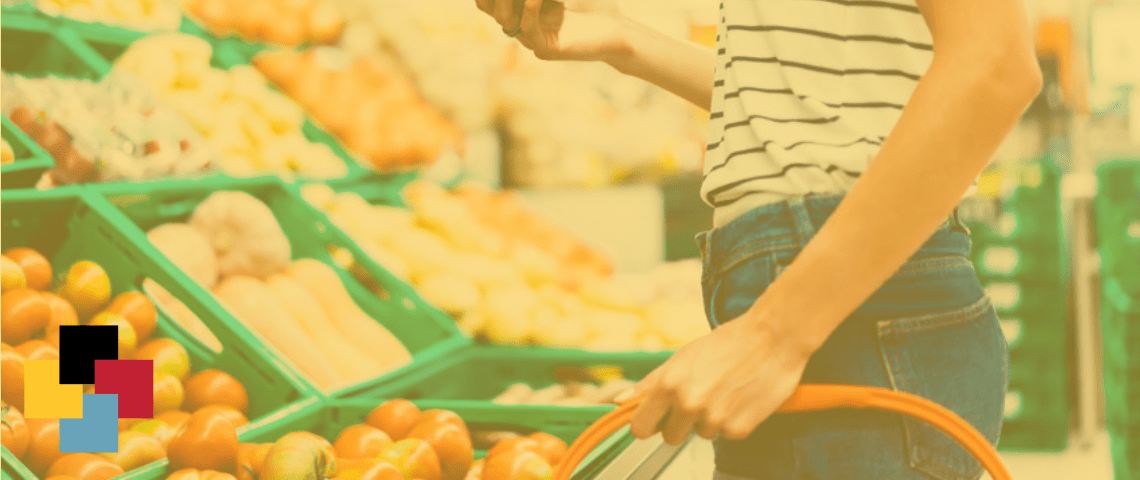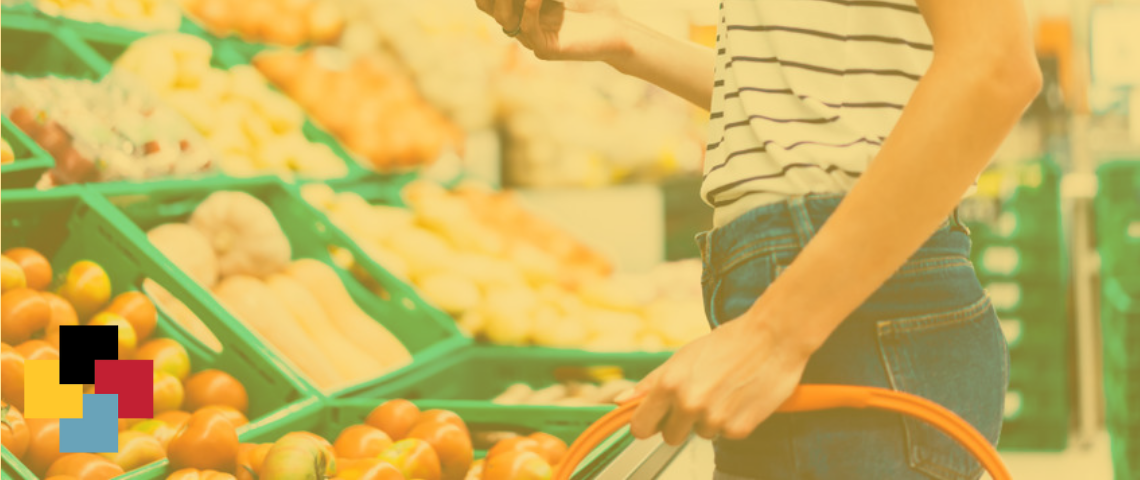-
COVID-19 has caused a tremendous shift in consumers adopting smart retail, which the grocery and retail sectors have since integrated within their stores.
-
Dr. Kimberly Thomas-François' research stems from her experience working in the foodservice industry in her home country of Grenada. Her research explores smart technology within the retail and grocery sector.
Dr. Kimberly Thomas-François’ passion for discovering sustainable solutions to challenges in the food industry stems from her first full-time job in the hotel and tourism industry back in her home country of Grenada. As she learned the ins and outs of the industry, she caught a firsthand glimpse of the inequities perpetuated by a monopolized food economy.
“Local farmers and other producers who contributed to the industry were receiving limited benefits from industry leaders because of inadequate economic linkages between the two,” Thomas-François explains. Her interest in promoting equity and efficiency at every level of the food and grocery supply chain ultimately brought her to the University of Guelph to study management and hospitality.
“Throughout the agricultural community in Grenada and the Caribbean, Guelph is known as a prestigious food university, so it’s an honour to be here,” she says.
Currently a post-doctorate fellow with the Gordon S. Lang School of Business and Economics, Thomas-François focuses her research on smart retailing, or integrating technology into the interactions between shopper and retailer. These systems include digital assistants like computerized information stands, price-checkers, self-checkout, and mobile apps.
“Over the course of the pandemic, we’ve seen tremendous behavioural shifts in consumers who were previously reluctant to adopt new forms of smart and online shopping,” she notes. “And this is largely due to their desire to minimize human contact.”
Thomas-François identifies four primary groups of consumers in Canadian grocery and retail stores: enthusiasts, potentials, fence-sitters, and traditionalists. She places these groups on a spectrum from most eager to least eager to adopt smart forms of technology in grocery stores. “It’s worth noting that neither ease of access nor a consumer’s level of comfort with technology guarantees they will take advantage of automated resources,” says Thomas-François. “That should be a sign for retailers to continue offering hybrid forms of customer service. We want to give the consumer as much control as possible over their shopping experience. They should have the opportunity to make their own choices.”
Looking to the future, Thomas-François sees the boom in grocery store innovation as a potential catalyst for job creation, since retailers will need employees with a variety of skillsets to sustain technological innovation. She’s particularly enthusiastic about the ways mobile apps will expand to make that weekly shopping trip a more holistic and enjoyable experience.
“From meal-planning help to accessible weekly discounts, grocery stores are reimagining the consumer experience through mobile app development,” she says. “They’re focusing on how to provide for their communities beyond simply selling products.”
Thomas-François credits Guelph with shaping her social conscience when it comes to business and marketing. “Fellow students and colleagues are using their life stories and research expertise to enact real change for real people,” she says. “My ultimate objective is to become a professor so that I can have the privilege of raising up a new generation of innovative, socially-conscious leaders in sustainable food systems.”


